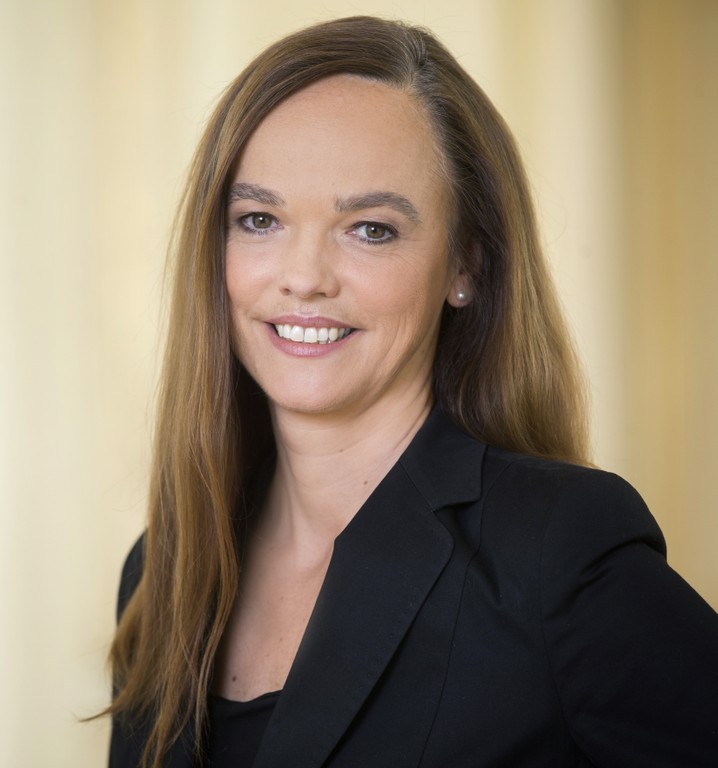March of the Living: Interview mit FBM Hammerschmid in der Jerusalem Post
Der „March of the Living“ ist ein jährlich stattfindender internationaler Gedenkmarsch. Die Teilnehmenden gehen vom Konzentrationslager Auschwitz in das Vernichtungslager Auschwitz-Birkenau. Er gibt Menschen aus aller Welt Gelegenheit, der Opfer des Holocaust zu gedenken. Seit 1988 haben über 250 000 Menschen, darunter viele SchülerInnen, am „March of the Living“ teilgenommen, die Gedenkkundgebung wird mit einem Bildungsprogramm verbunden.
FBM Hammerschmid wird am „March of the Living 2017” teilnehmen.
Das Bundesministerium für Bildung hatte sich an die Spitze der Initiative gestellt und alle europäischen BildungsministerInnen zum „March of the Living“ eingeladen. Dr. Hammerschmid wird im April gemeinsam mit dem Generalsekretär des Europarates, Thorbjørn Jagland, dem Schweizer IHRA Vorsitzenden, Botschafter Benno Bättig, Martine Reicherts, Leiterin der Generaldirektion Bildung und Kultur der Europäischen Kommission und einzelnen europäischen BildungsministerInnen teilnehmen. FBM Sonja Hammerschmid wird am „March of the Living“ die gemeinsame Deklaration der europäischen BildungsministerInnen gegen Holocaustleugnung, Antisemitismus und Antiziganismus verlesen. Der „March of the Living“ findet vom 23. bis zum 25. April in Krakau und an der Gedenkstätte Auschwitz statt.
Interview mit FBM Hammerschmid
Anlässlich des „March of the Living“ bat die Jerusalem Post, für eine Wochenendbeilage zum Gedenkmarsch, FBM Hammerschmid zum Interview: Guarding the Memory of the Holocaust Through Education
Jerusalem Post: Can you explain what kind of educational programs are in place to help keep alive the memory of the Holocaust and its Jewish victims?
Sonja Hammerschmid: The National Socialist era and the Holocaust have left their mark on Europe’s and Austria’s cultural memory almost like no other lieu de mémoire in European history. The critical examination of the crimes against humanity as it was the Shoah during the Nazi regime, and remembering the resistance and those who came to the aid of those being persecuted, are all a part of today’s Austrian identity.
In light of the special responsibility which Austria bears as the consequence of its more recent history, the Federal Ministry of Education, through its _erinnern.at_, association is encouraging and facilitating an appropriate examination of the National Socialist era and the Holocaust in Austrian schools.Teaching and learning about the Holocaust is an integral part of the school curricula for history in grades eight and 11 and 12 of all school types.
Ongoing _erinnern.at_ activities are education and training for Austrian teachers, development of teaching materials in accordance with the most recent standards of media education, and the information hub www.erinnern.at.
This includes two-week training courses for Austrian teachers at the International School for Holocaust Studies Yad Vashem in Jerusalem, which have been run since 2000. The training courses provide the opportunity for teachers to familiarise themselves with the Israeli Holocaust narrative. Participation obliges teachers to pass on their knowledge and to continue their involvement. This year approximately 650 participants will have profited from these seminars.
An annual seminar with survivors gives teachers the unique opportunity to meet and learn about their life stories and many survivors still visit school classes to share their experiences with pupils.
The Central Seminar is an annual event, run over several days, bringing together stakeholders in education and science and offering representatives from the relevant scientific disciplines (historical research, literary studies, sociology, etc.) the chance to meet up with teachers, education experts, textbook authors and some students. This is where the fundamental debate on an appropriate approach to the subject of National Socialism and the Holocaust in the Austrian education system takes place (involving around 1,500 teachers to date).
My Ministry and _erinnern.at_ are playing an active role in the International Holocaust Remembrance Alliance, to which we attribute our highest importance.
Jerusalem Post: Is it correct to say that socially and culturally, Austria has some very mixed schools – many with a large proportion of immigrants? If so, are there particular challenges to teaching about the Holocaust under these conditions?
SH: Schools deal with this diversity in many subject matters, also in teaching about the Holocaust. There is no indication of specific opposition to any subjects of teaching from any specific group. Of course schools reflect the general discussions or controversies within a society and teachers cope with these challenges.
There is a considerable risk of groups and movements seeking refuge in simple “we-“ constructions and trying to legitimize and distinguish themselves through enemy images. This is a big topic also on the level of the European Union. We need to recognize the chances and enrichments that diverse societies offer.
Jerusalem Post: The extreme Right wing is seeing a renaissance in much of Europe; How is that tackled vis-à-vis Holocaust education in Austria?
SH: School curricula in Austria include Holocaust education within history teaching in every school form. Hereby teaching materials and textbooks address the meaning of this important part of Austrian history for today. Contemporary relevant political or societal issues are also dealt with in citizenship education. Schools offer safe space for exploring sensitive issues and teachers are trained to address these questions without attempts of indoctrination. _erinnern.at_ developed a schoolbook to address the topics of antisemitism, racism and intolerance with school kids and we invest considerable efforts into teacher training in order to support teachers in dealing with radicalization.
Jerusalem Post: Do you feel that given its history, Austria is in a unique position to teach not only other European countries, but also others throughout the world about the dangers of turning political anger into legally enshrined intolerance and victimization?
SH: Every country and society has its own parts of painful history, be it connected to events of mass violence, to colonialism or others. Austria and Austrian schools need to confront the long history of antisemitism – also before the rise of the Nazis – and especially the involvement of so many Austrians in the atrocities during the 2nd world war and foremost the Holocaust. What is learned from this history depends on the questions that are directed to this history. And these questions vary from time to time and from group to group. Each age cohort brings forward new and specific questions and academic history, archives, museums as well as educational institutions like schools and also _erinnern.at_ provide the resources and competencies that are needed. We in Austria feel privileged to learn from other countries experiences – like Israel – and we gladly invite others to share ours.
Here the IHRA plays an important role. This supranational network is of utmost importance for the exchange and discussion in the fields of education, remembrance and research pertaining to the Holocaust and the time of National Socialism.
Jerusalem Post: The number of Holocaust Survivors is diminishing annually, what plans are in place for when there are no longer those living remnants of the past, able to give first-hand testimony to what they witnessed and experienced?
SH: Fortunately many survivors visit schools annually and survivors and teachers meet at the annual seminar for contemporary witnesses to the Holocaust that is offered by my ministry through _erinnern.at_ .
In addition to this for several years now we provide learning programs that are based on videotaped testimonies of Holocaust survivors for schools. Research has proven that this is well received by pupils and teachers as well and our institute _erinnern.at_ currently works in an international cooperation on the development of an innovative learning app based on video testimonies. _erinnern.at_ held an international expert conference earlier this year.
There are also plans for a project to establish a comprehensive website-based collection of all available video testimonies of Holocaust survivors in Austria. Here we are amongst others partnering with the USC Shoah Foundation Institute in Los Angeles.
Jerusalem Post: Can you give a personal experience about any interactions you had with Holocaust education or survivors? What kind of effect did it have on you?
SH: I was born in Upper Austria, the federal province which – through sites as the former concentration camp Mauthausen with Gusen and Ebensee and painful incidents as the “Mühlviertler Hasenjagd” - will forever be associated with the National Socialist history of Austria.
This has deeply affected me and it encourages me in my efforts to provide adequate Holocaust education in schools. As former Rector of the University for Veterinary Medicine, I have initiated research of the history of this institution.
Jerusalem Post: If you could send a message, particularly to the younger participants of this year’s March of the Living, what would it be?
SH: Listen empathically to what survivors have to tell, explore carefully the sites of Nazi crimes and analyze thoroughly what happened in society and politics in the past that has allowed all these crimes to take place and has caused so much pain. Consider carefully the developments in your world today and think about what you can do to stand up courageously against hate, discrimination and racism.
Links:
The Auschwitz-Birkenau Declaration on combating Holocaust denial and combating Antisemitism
Presseaussendung von Bildungsministerin Hammerschmid zum „March of the Living“







